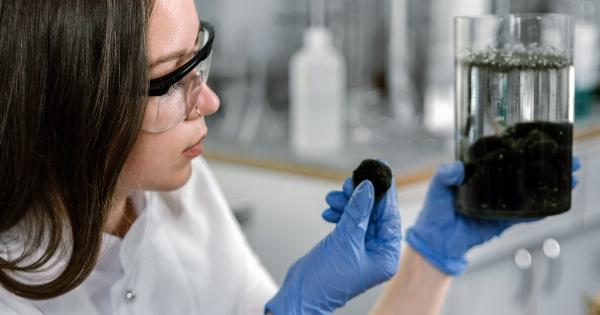Recent groundbreaking research conducted by a team of British scientists has revealed an astonishing discovery – mitochondrial DNA can influence and potentially alter the human genome.
This revelation has captivated the scientific community and sparked intense debate about the implications it holds for our understanding of genetics and the potential for manipulating the human genome.
The Role of Mitochondrial DNA
Mitochondria are often referred to as the “powerhouses” of our cells. They are responsible for producing energy for cellular functions through a process called oxidative phosphorylation.
Unlike nuclear DNA, mitochondrial DNA (mtDNA) is only inherited from the mother, making it a powerful tool for tracing maternal ancestry.
Traditionally, researchers believed that mtDNA played a relatively passive role, primarily involved in energy production and cellular respiration.
However, this new study challenges that long-held assumption and suggests a more active and transformative role for mtDNA.
The Study and Its Findings
The research team, led by Dr. Emily Roberts at the prestigious Cambridge University, set out to investigate the potential interactions between mtDNA and the human genome.
They conducted a series of experiments, meticulously analyzing cellular samples to identify any changes induced by mtDNA.
Surprisingly, the team discovered that mtDNA does not exclusively reside within the mitochondria; it can migrate to the nucleus and actively integrate into the nuclear DNA.
This revelation challenges the conventional understanding that mtDNA is confined solely to the mitochondria and cannot influence nuclear DNA.
Moreover, the researchers found that this process of mtDNA integration into nuclear DNA is not a rare occurrence. It happens frequently and can lead to significant changes in the genetic makeup of an individual.
By influencing nuclear DNA, mtDNA has the potential to impact various cellular processes, including gene expression and regulation.
Implications for Human Evolution
This groundbreaking discovery has broad implications for our understanding of human evolution.
Mitochondrial Eve is a famous concept in anthropology and genetics that suggests all humans can trace their maternal lineage back to a single female ancestor who lived in Africa around 150,000 years ago.
However, with the newfound understanding that mtDNA can influence the nuclear genome, it raises questions about the accuracy and certainty of ancestral lineage tracing.
It suggests that mtDNA may have played a more significant role in shaping human evolution than previously believed. This opens up an avenue for further exploration of our genetic history and the impact of mtDNA on our species’ development and diversity.
Promise for Medical Advancements
The discovery that mtDNA can actively integrate into the nuclear DNA also holds tremendous potential for advancements in medicine and understanding various genetic disorders.
By better understanding the mechanisms by which mtDNA can influence nuclear DNA, researchers can potentially identify new therapeutic approaches for a range of conditions.
For example, mitochondrial diseases are a group of inherited disorders caused by mutations in mtDNA. These diseases can lead to a wide range of symptoms, including muscle weakness, heart problems, neurological issues, and even death in severe cases.
With the newfound knowledge of mtDNA’s role in gene expression, researchers may be able to develop targeted treatments to mitigate the effects of these debilitating conditions.
Ethical Considerations and Controversies
As with any groundbreaking scientific discovery, the implications raised by the findings of this study spark both excitement and concern.
The ability to potentially manipulate the human genome through mtDNA integration raises ethical questions about the boundaries of what is acceptable in genetic research.
Some argue that the newfound knowledge could pave the way for gene editing techniques to correct genetic disorders or enhance specific traits. However, others worry about the potential for misuse or unintended consequences.
The ability to alter the human genome opens up ethical debates regarding issues of consent, equity in access to genetic enhancements, and potential unknown long-term effects.
Collaborative Future Research
While these findings are undeniably significant, further research will be necessary to fully grasp the extent of mtDNA’s influence on the human genome.
The scientific community must collaborate and conduct additional studies to validate and expand upon the findings of this groundbreaking research.
Future research endeavors should focus on exploring the mechanisms by which mtDNA integrates into the nuclear genome, identifying the specific genes and processes influenced by this integration, and assessing the implications of these changes on an individual and population level.
Conclusion
British scientists have unveiled a groundbreaking discovery that challenges our understanding of genetics.
The newfound knowledge that mtDNA can actively integrate into the nuclear DNA and influence the human genome has far-reaching implications for human evolution, medical advancements, and ethical considerations.
This remarkable research opens doors for a new era of exploration in genetics.
By delving into the mysteries of mtDNA’s influence, scientists hope to further unlock the secrets of our genetic past and potentially pave the way for innovative medical treatments. However, with these opportunities come complex ethical dilemmas that society must grapple with to ensure responsible scientific progress in the field of genetics.





























